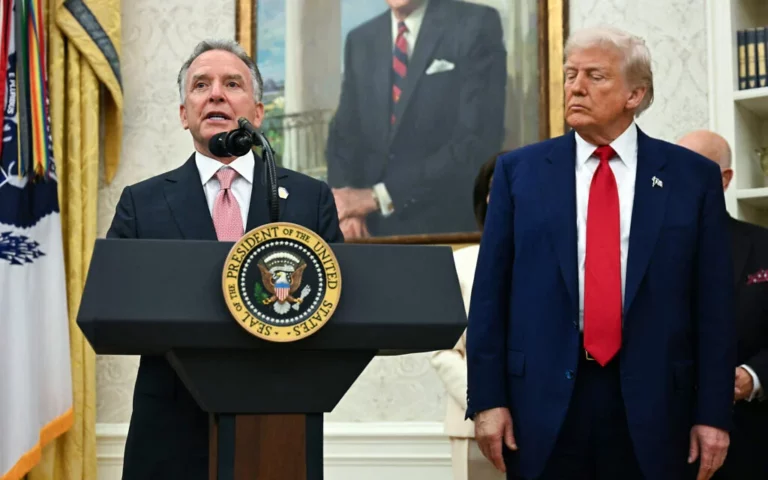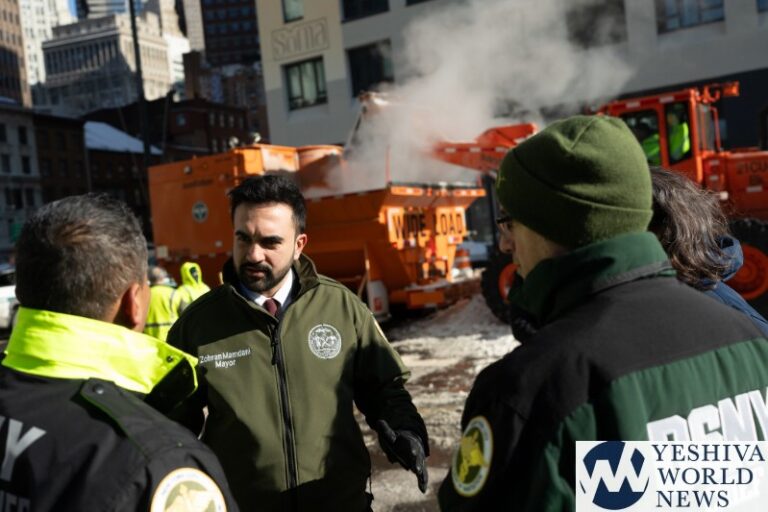A battle is taking place between Attorney General Avichai Mandelblit and the Chief Rabbinate of Israel and the Ministry of Religious Services over who oversees construction at the Kosel and other holy sites.
Mandelblit refuses to grant special approval to the Chief Rabbinate and the Religious Services Ministry, who are seeking private representation in the Supreme Court on the issue of transferring the authority of Miri Regev and Ayelet Shaked to Prime Minister Binyamin Netanyahu and Minister Yuval Steinitz. Mandelblit’s argument: “This is a petition dealing with the question of government authority.”
The current confrontation between Mandelblit and the Religious Services Ministry relates to a petition filed by B’tzedek against the transfer of powers in the special committee that approves construction work in ancient religious buildings, which were transferred to the hands of the Prime Minister and Minister Steinitz. The petitioners maintain the handing over of the authority to decide is not legal, citing PM Netanyahu and Minister Steinitz are going to decide in matters not included in their ministerial jurisdiction, in contradiction to the ministers empowered to decide in the matter who have resigned from the committee.
The petitioners explain, “The composition of the committee is designed to balance between various interests (antiquity, religion and law), while discussing the matter between them, and the replacement of most of the members of the committee is unreasonable and illegal.”
A Bechadrei Chareidim News report adds the Ministry of Religious Services and the Chief Rabbinate have contacted Attorney General Mandelblit, who is responsible for petitions by government ministries and the government’s response on behalf of the various ministries to the High Court of Justice, claiming that the relevant ministries’ position is religious and halachic, and the position of the other respondents, PM Netanyahu and Minister Steinitz, also have political considerations. For this reason the Rabbinate and the Ministry of Religious Services demand private and independent representation in court hearings on the matter.
In a letter from the Chief Rabbinate, Rabbi Raphael Frank wrote that “a decision by the committee is liable to cause a mortal blow to the religious aspect, and chas v’sholom, the desecration of the Kosel. It should be noted that the Regulations for the Preservation of Jewish Holy Sites, 5741-1981, apply to the Kosel, including its southern part. The authority to determine the order of tefilla in this holy place is the Chief Rabbinate of Israel.”
“To the crux of the issue, the position of the Chief Rabbinate of Israel is completely contrary to the position that appears in the state’s response to the interim order, which it will specify in a separate statement of arguments. Therefore, separate representation in the matter is being requested,” the letter explains.
Bechadrei Chareidim reports learning that the attorney general refused to grant the exceptional permit and gave his own response through the State Attorney’s Office in response to the petition, according to which “the Committee of Ministers and the Ministerial Committee shall consider the considerations that are necessary when examining the exercising of said authority in this context.”
In its response to the High Court of Justice, the state argues that “it is important to remember the purpose of the said authority, and to allow the political echelon to consider matters relating to an antiquity site used for religious purposes or devoted to a religious purpose.”
To no surprise, the state’s response through the State Attorney’s Office under the Justice Ministry and the Attorney General, did not mention the halachic position of the Chief Rabbinate and the Ministry of Religious Services presented as respondents in the petition filed against the transfer of powers.
In the B’tzedek petition, attorney Eldad Rabinovitch argued that “the replacement of most of the members of the committee in order to arrange its composition in order to make the desired decision in the eyes of the Prime Minister, turns the committee into a rubber stamp, and turns the provisions of the Antiquities Law into a mockery and obfuscation. The Honorable Court is requested to issue an order instructing the respondents to give reasons why the decision that is the subject of this petition and this request or any other decision that the Committee of Three will receive will not be canceled, since the composition of the committee is defective”.
Bechadrei adds that the response it received on behalf of Mandelblit’s office states, “Since the petition deals with the question of government authority to delegate the powers of ministers, a question that is not related to the areas of responsibility and authority of the Chief Rabbinate, it is not appropriate to permit separate representation.
The committee was to determine the future of the status of the Kosel vis-à-vis demands from Reform Jewry seeking equal rights and official recognition at the holy site. Ministers on the committee exhibited sensitivity regarding chareidi pressure to refrain from formally recognizing Reform Jewry. Ministers Miri Regev, David Azoulai and Ayelet Shaked all resigned from the committee, leaving Minister Steinitz. PM Netanyahu decided that he and Steinitz would decide alone, leading to the Chief Rabbinate demanding separate representation in the court, citing the two are not within their ministerial authority to decide the future of the Kosel.
(YWN Israel Desk – Jerusalem)











